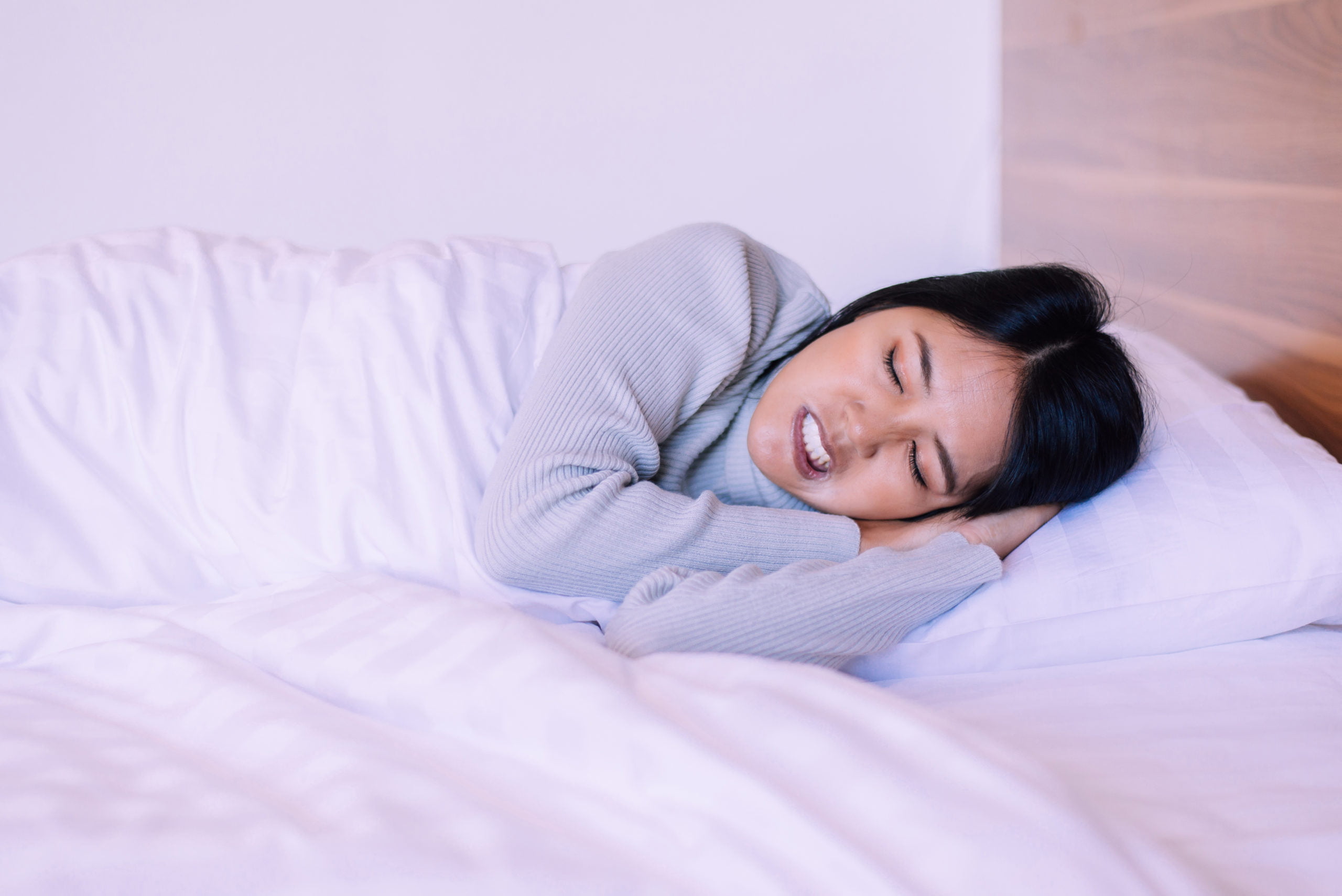Are you guilty of teeth-grinding? If you wake up in the morning with sensitive teeth, or tight jaw muscles, the answer is probably yes. And you’re not alone – it’s estimated that up to 30% of the general population grind their teeth at night.

Your night-time teeth grinding could be something much more serious than stress
The medical term for a teeth-grinding habit is bruxism. It can lead to tooth damage, worn enamel and hypersensitive teeth. But it can also indicate an underlying sleep disorder that you might not know you have: obstructive sleep apnoea.
What is obstructive sleep apnoea?
Obstructive sleep apnoea (OSA) is a condition where sufferers stop breathing in the night – and snoring is often the first symptom of OSA. It occurs when your upper airway collapses or becomes blocked during sleep. When you try to breathe, the limited air that passes through the blockage can result in loud snoring. Symptoms of OSA include: waking with a headache, daytime sleepiness, insomnia, and making gasping/choking noises while you’re asleep. Around 1 in 4 people with sleep apnoea are thought to grind their teeth at night – and it’s men that are more likely to be affected.
So why do people grind their teeth?
People grind their teeth for a variety of reasons. The most common factor is stress or anxiety, followed by certain lifestyle habits (like smoking or drinking a lot of caffeine).
But teeth-grinding can also happen as a defence against sleep apnoea. When the muscles in your throat relax, your tongue becomes less tense, and it can fall towards the back of your airway. Your lower jaw also tends to relax along with the rest of your facial muscles. Because your tongue is anchored to your lower jaw, it helps pull your tongue back even further towards your throat. If your airway is already naturally narrow, this can seriously affect your ability to breathe properly.
This is where grinding your teeth comes in. A way to defend against your airway blocking is to clench your teeth together. This action will hold your lower jaw in place to try and help keep your airway clear. But teeth-grinding isn’t always effective, and you could be risking damage to your teeth and your health.
How do I fix it?
If you suspect you might be suffering from sleep apnoea, try to visit your doctor as soon as possible. They’ll be able to advise whether your teeth-grinding habit is a by-product of your OSA. In most cases, managing OSA can help stop night-time teeth-grinding. Many causes of OSA (like weight gain, smoking and drinking) can be fixed with some lifestyle changes.
For severe sleep apnoea, the most common treatment method is the use of a continuous positive airway pressure device (a CPAP machine). CPAP uses air pressure to keep the airway passages open. An oral device can also be helpful in treating OSA. These mouthguards work by holding your lower jaw slightly forward while you sleep. This opens your airway and helps you to breathe normally. Because an oral device is similar to a dental guard, it can also be effective in relieving the symptoms of bruxism.
The best way to deal with teeth-grinding is to get to the root cause of the issue. If OSA is to blame, then dealing with the condition will help you manage the risk to your smile and your health.
